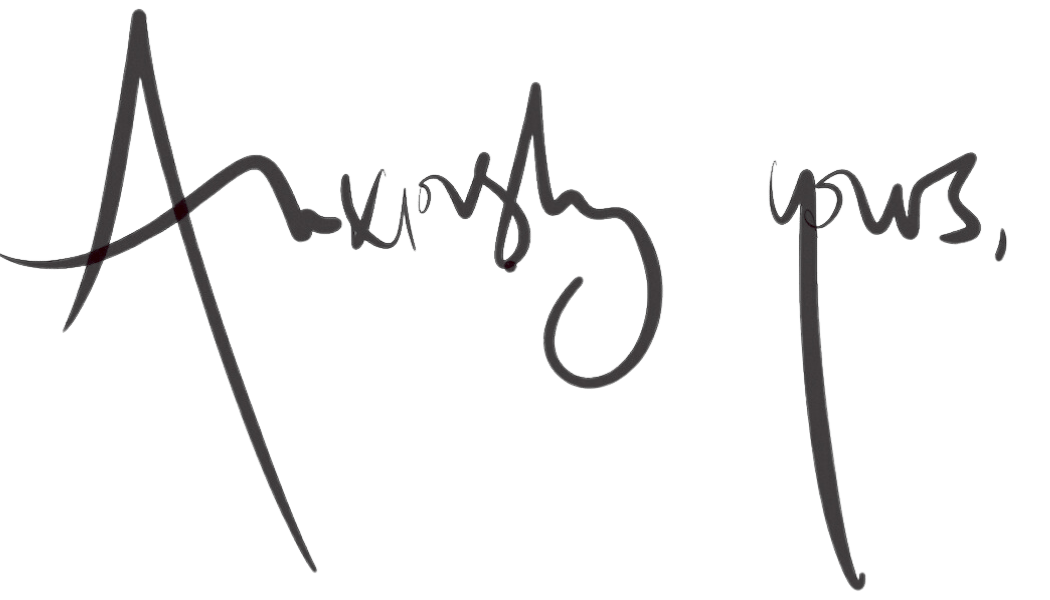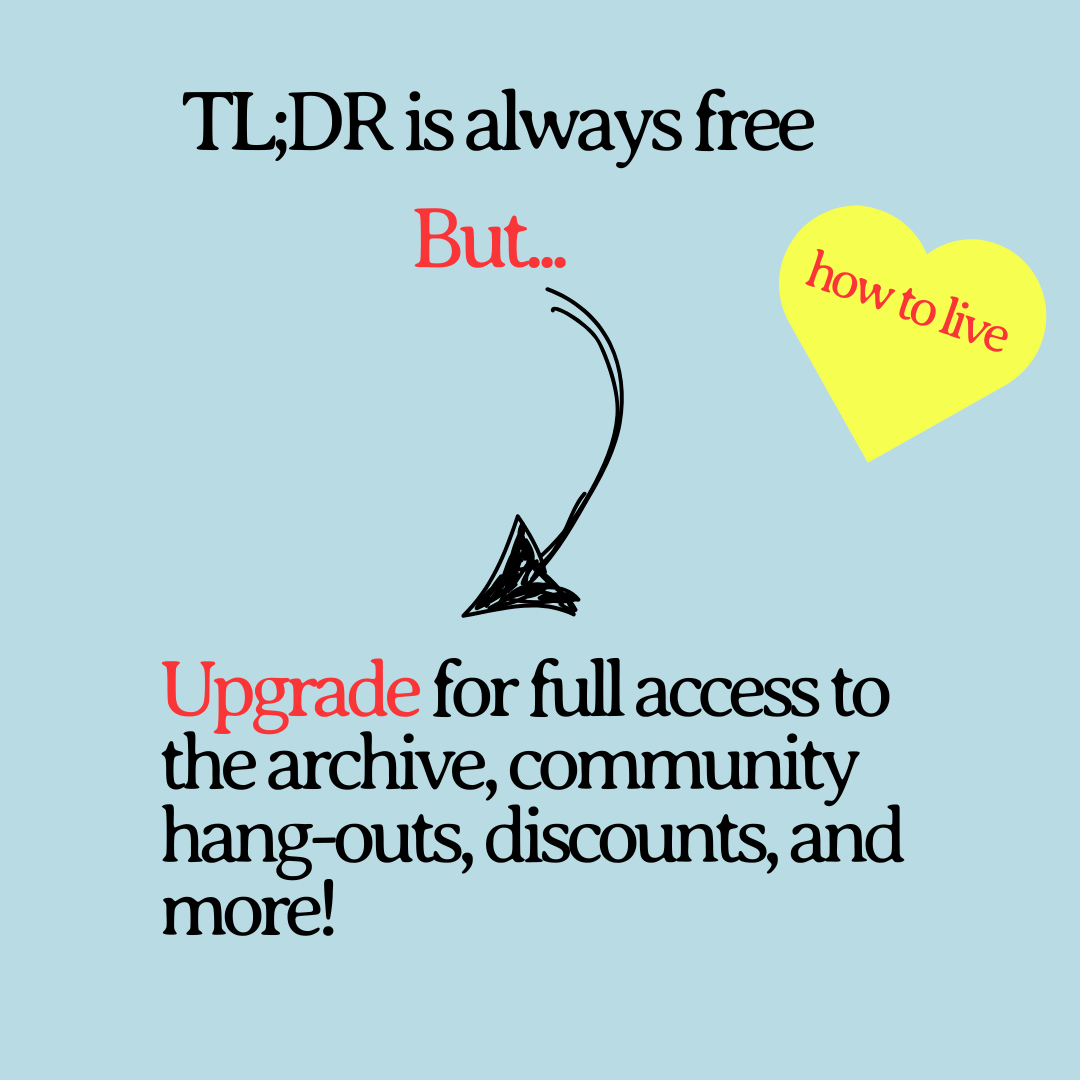TL;DR is a monthly digest summarizing the vital bits from the previous month's How to Live newsletter so you don't miss a thing.
How to Live survives on reader support. In these bleak times when our “leadership" aligns with authoritarian forces and abandons allies, independent writers and artists creating vital resources need our backing more than ever.
I spend hundreds of hours a month researching, writing and maintaining this newsletter without a team or help. Your support helps sustain this work and keep it alive for another day.
Every dollar truly makes a real difference. Thank you.
On February 5th, 2025 I Wrote About Dorothea Dix, a 19th Century Teacher, Who Revolutionized Patient Care.
In antebellum America, people afflicted with mental illness were stashed away as mortifying secrets hidden in the side pockets of local geography.
If they lacked attics, wealthy families built annexes to their homes, discrete additions with barred windows and soundproofed walls, and hid their afflicted family members, out of view of friends and society.
Less fortunate families resorted to crude shelters or basement cages.
All these efforts to hide and forget afflicted loved ones reflected society's shared view that mental illness was not a medical condition that could improve with treatment, but a moral stain on the family line.
The hidden were often neglected and largely forgotten by their own families. Their existence was often unknown to outsiders.
Sadly, while morally corrupt, these were better options then insane asylums, where patients were “treated” in gruesome and barbaric ways.
This was the landscape into which Dorothea Dix, a proper Boston schoolteacher, stepped one bitterly cold March morning in 1841, when she arrived at East Cambridge Jail where she was to teach a Sunday school class.
It's a Valentine's Day tradition at The How to Live Newsletter to share this story.
❤️ Valentine's Day often exacerbates loneliness for people who have lost partners, broken up, or are single. For many others, it's simply an irritant.
The story I want to tell you reflects the paradoxical nature of Valentine's Day and what it elicits: absence and presence, fact and fiction, love and a wedding whose marriage has stood the test of time, even if it never happened at all.
When I was young, I began thinking that our society had a lot of things backward, and as I got older, I also wondered whether we'd gotten the timing of marriage wrong.
After all, it takes a long time to get to know someone, and if you're a person who wants to get married, sometimes the time it takes feels forbidding. It’s only after many years that you begin to genuinely know someone, and by then, you might realize they’re the last person you’d want to marry, so then what—you just have to start again?
Instead of spending years getting to know someone before deciding to spend your life with them, perhaps we should decide right away to spend our life with our new partner and spend the rest of the time discovering whether we want to continue.
Before you marry a person you should first make them use a computer with slow Internet to see who they really are.
I've done many spontaneous and whimsical things in my life. Some excellent—like running away with the Cirque du Soleil for a year. Some were ill-advised and traumatic, like dating my literary agent.

Yes, they spelled my last name wrong.
But one has stood the test of time, not only as a story I've told at dinner parties (ah, remember those?) but as an unbroken bond stretching across continents, time, language, and truth.
This is the true story of my fake ex-husband, Pablo.
February 19th, 2025, I Wrote About The Freedom of the Unknown.
I don't do well in winter.
In 2023, I got sick and remained unwell for 9 months. An X-ray of my lungs found a suspicious lesion—an apt term, as it was up to no good.
Soon, I had a pulmonologist, and he sent me to an oncology center where I received a contrast injection—a radioactive drug called a tracer—into my vein, whose warmth schooled like fish through my body and onto the PET (Positron emission tomography) scanner I flopped.
Adding to my growing collection of doctors, I was given an oncologist.
My brother Eddie came with me to the oncologist to hear the results of the PET scan (wearing a long lavender wool coat, which got him surprised nods of respect). My sister called in from abroad, and pointing to the image of the suspicious lesion, the oncologist identified all the "hot" areas where the scan clustered around the lesion.
He diagnosed me with fake lung cancer.
My oncologist was 70% certain I had lung cancer. This wasn't too surprising—I did smoke for 21 years, and my maternal grandmother died of lung cancer—but I'd not had a cigarette in 15 years. The doctor reassured me that my fake cancer was in the very early stages—Stage 1, but we still needed a biopsy for confirmation. The bad part was that I had to wait 6 weeks for a biopsy.
For 6 weeks, I assumed and readied myself for Stage 1 lung cancer. He said I would only need surgery to cut out the cancer and probably no radiation or chemotherapy.
And then I had the biopsy and it was negative, which meant I did indeed have fake cancer.
They tested the lesion for months to uncover what I had. They said it could be Mycobacterium Avium complex (MAC) or a non-tuberculosis granuloma.
Essentially, they didn't know; they never figured it out.
Their best guess was that it was environmental.
That guess might be the most accurate because the last two winters I’ve gotten sick in November and remained sick until February.
That's why I decided about 8 months ago to face facts: I had to become a snowbird (a person who makes verbs out of seasons and WINTERS in a warmer climate.)
I lived in Western Europe for a little over a year in 2002-2003, traveling with the Cirque du Soleil, with an old boyfriend who starred in their show Saltimbanco, and it's where I felt most at home (in Barcelona and Menorca, especially).

So, I went on Home Exchange, looking for a 3-month exchange. Harder to find than I anticipated from a site called Home Exchange. Then, a woman contacted me one day saying she needed to be in NY for a month. Did I have any interest in coming to Malta?
MALTA?!
Despite not knowing where Malta was located, I didn't hesitate to say yes.
So here I am—RIGHT NOW—in Malta. I arrived 4 days ago with my dog Busy.
February 26th, 2025 I Wrote About The Current Creative Inputs Getting Me Through.
Hello from Malta!
Things here aren’t going so well—housing issues, but I’ll fill you in another time, I promise. For now, just know I’m feeling pretty miserable and searching for anything to lift my spirits.
For me, that usually means discovering things that fire up my neurons.
Friends, on that front, I’ve succeeded. Today, I’m sharing the best things I’ve stumbled upon—plus introducing you to someone who always gets me through.
Stumbled upons
There was a book on the counter at my friend Jen and Adam’s house. The cover appealed to me, but it was padded, which I took to mean it was for kids, and so I left it closed.
The next time I was over, the book was still on the counter, and Jen mentioned it—she’d discovered the artist at PS 1, where his work was being exhibited.

It wasn’t a book for kids. (Assumptions, always steering me away from what I need.)
I opened it, and wandered slowly across the pages. I found it sad, poignant, and also funny—my three favorite things.
The book is called Things Felt But Not Quite Expressed and it’s by artist Sohrab Hura.


Until next week, I remain…

Amanda
P.S. Thank you for reading! This newsletter is my passion and livelihood; it thrives because of readers like you. If you've found solace, wisdom or insight here, please consider upgrading, and if you think a friend or family member could benefit, please feel free to share. Every bit helps, and I’m deeply grateful for your support. 💙
Quick note: Nope, I’m not a therapist—just someone who spent 25 years with undiagnosed panic disorder and 23 years in therapy. How to Live distills what I’ve learned through lived experience, therapy, and obsessive research—so you can skip the unnecessary suffering and better understand yourself.
Some links are affiliate links, meaning I earn a small commission at no extra cost to you. Every bit goes straight back into supporting this newsletter. Thank you!









 Upgrade
Upgrade